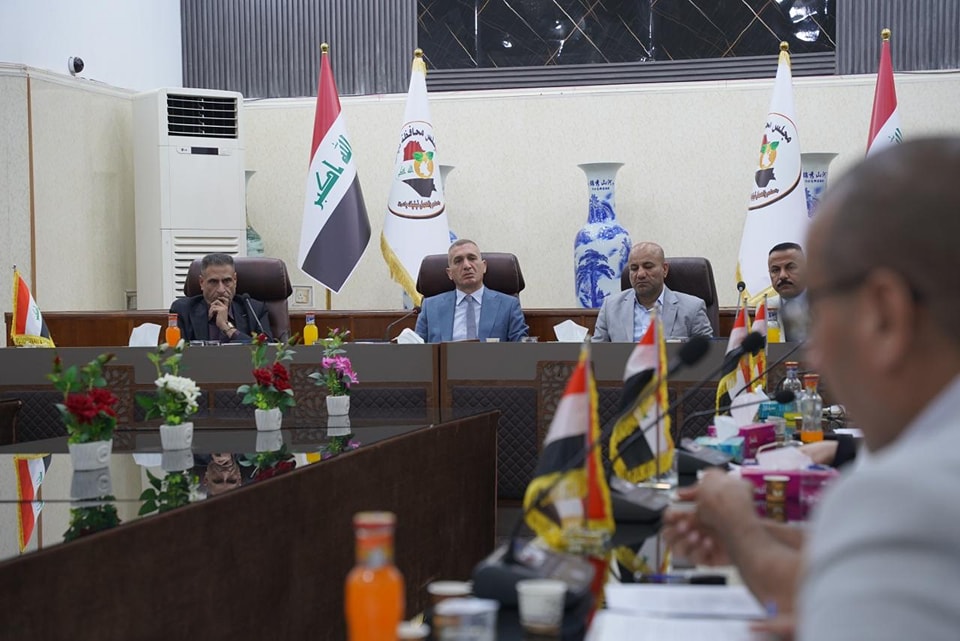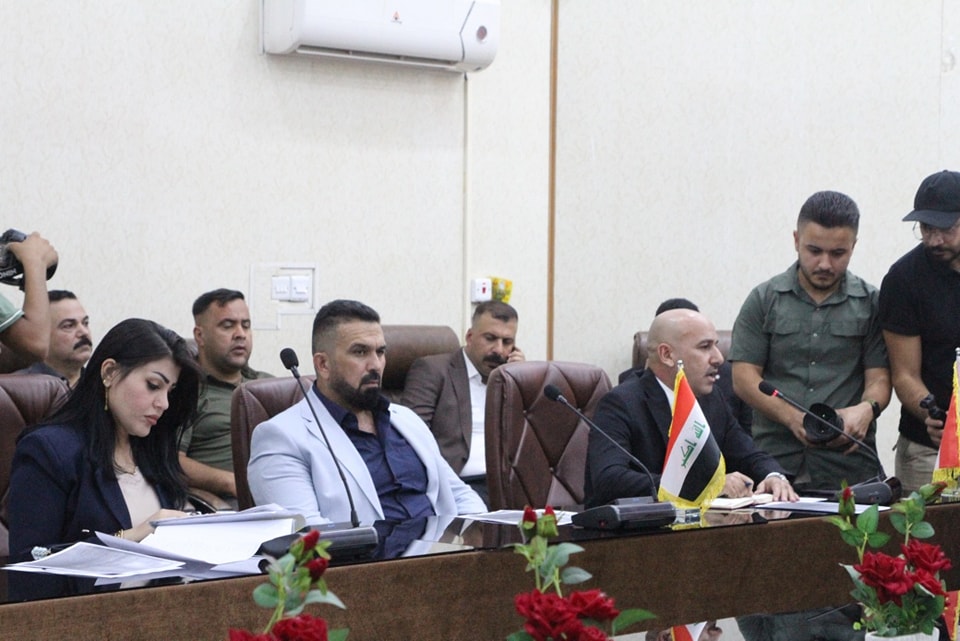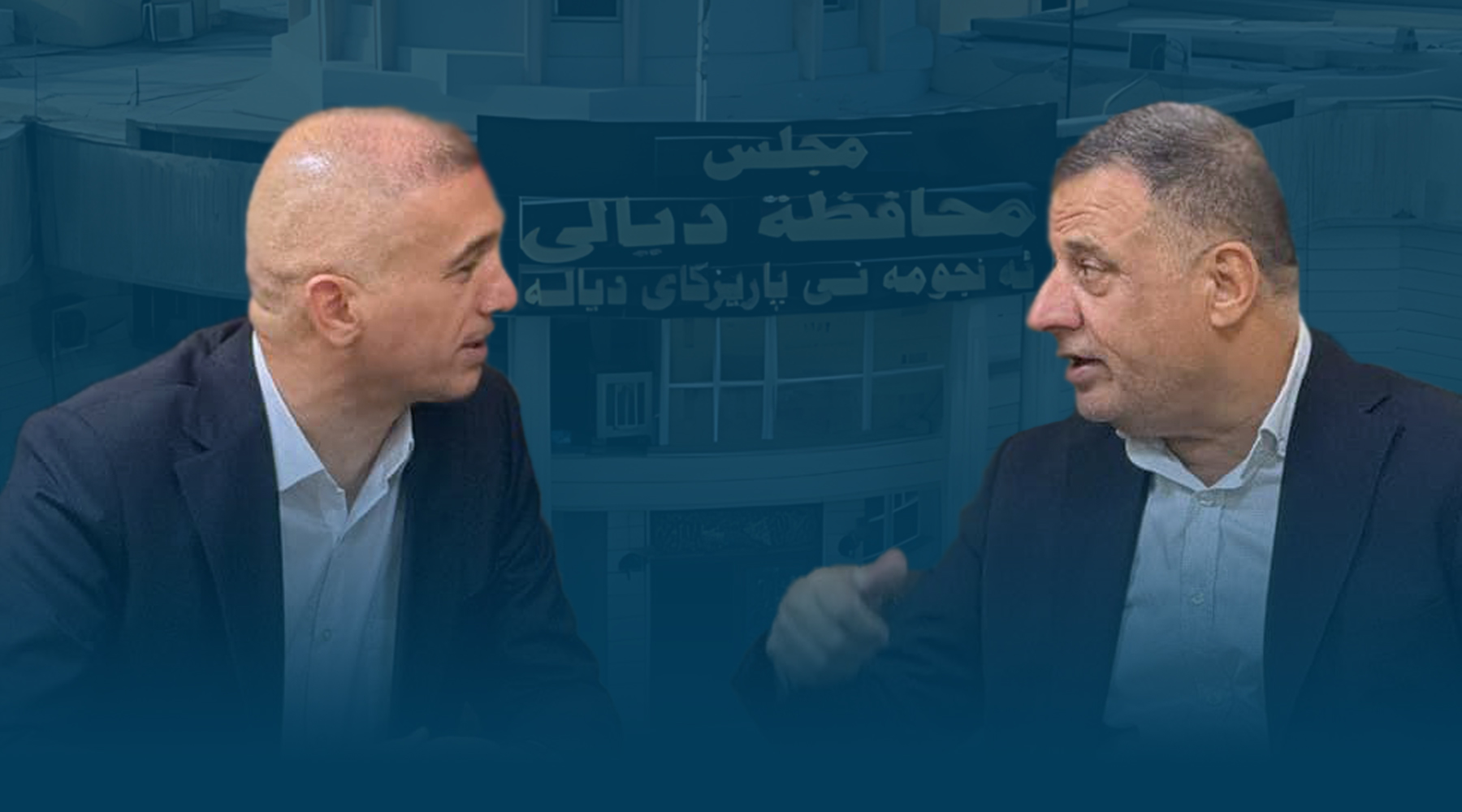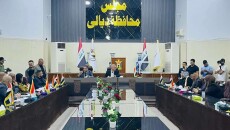The opposition blocs in the Diyala provincial council ended their boycott and voted in the first session they attended, after several months of disagreements, over appointment procedures.
The ninth session of the provincial council was held on September 10 with 14 members in attendance, including the former Diyala governor and head of the Diyala Alliance, Muthanna al-Tamimi, who had boycotted sessions for months.
According to a statement from the provincial council, the session voted to launch over 7,000 job positions under the council's supervision to ensure a fair process.
The Diyalatuna Alliance, led by al-Tamimi, who received the highest number of votes in the provincial council elections, with other three members, insisted on assuming the position of governor before the formation of the local government in Bgahdad.
Following the session, Tamimi posted a photo with the council's head, Omar Al-Karwi, on Facebook on the same day as the last session of the provincial council.
"Badr's entitlements in Diyala province are preserved, and no one or any party denies Badr's entitlements," said Raad al-Tamimi, a member of the Diyala Provincial Council from the Diyalatuna Alliance,
Of the four members of the Diyala Alliance, two are considered close to the Badr Organization headed by Hadi al-Amiri, and the other two joined the State of Law Front led by Nouri al-Maliki.
"I, Muthanna al-Tamimi, and Farqad al-Rubaie were in Badr, but Farqad defected and joined the State of Law, and only Muthanna al-Tamimi and I remained," Raad added, while coalition member Turki al-Jadaan had previously joined the State of Law.

Diyala Provincial Council session attended by the governor, Diyala, 2024. Media of Diyala Provincial Council
Late last August, the presidency of the Diyala Provincial Council held meetings with political figures in Baghdad, including Nouri al-Maliki and Hadi al-Amiri, to resolve the boycotters' problem.
Following the formation of a new coalition called the Peace and Stability Coalition, consisting of five factions including Asaib Ahl al-Haq AAH led by hardliner Qais al-Khaz’ali, the State of Law, Sovereignty, Determination, Foundation, and a member of Badr, tensions have risen.
The new coalition has nine out of 15 members, excluding the PUK, which did not participate. The other parties were the same ones that held an emergency meeting in mid August at the Rashid Hotel in Baghdad, resulting in the election of the council speaker, governor, and deputies after months of controversy.
The Kurdish bloc, with one representative in the council, also boycotted sessions in protest of committee distribution before returning under an agreement.
Aws Ibrahim, a council member from the Patriotic Union of Kurdistan PUK bloc, stated, "After boycotting sessions, I returned and was elected as the head of the Migration, Displacement, and Civil Society Organizations Committee."
Previously, Kurds held positions such as deputy governor, district and sub-district mayors, especially in Khanaqin, a disputed town in Diyala.
Nizar al-Lahibi, a former opposition figure from the Progress bloc, returned to attend council meetings and was given the chairmanship of the Planning and Oversight Committee. Efforts to end
differences within the Diyala Provincial Council coincide with preparations for electing heads of administrative units, for which the council has opened the door for candidacy.
Ali al-Hujjiya, a political observer in Diyala, stated, "The Diyala Provincial Council is currently holding regular sessions and has two tasks to implement: the employment of 7,000 people and local administrative units."
He believes that with the current stability and political consensus, administrative changes will be made without problems or political pressures.
Despite this, there is still a group close to the Badr Organization, and it is unclear what positions will be granted to them.

The first meeting of the provincial council was held on February 5, 2024, but disagreements between the blocs prevented the formation of a local government. The election of the council president, governor, and their deputies took place on August 1 at the Rashid Hotel in Baghdad.
The 15 members of the Diyala Council were first divided into two teams: The Team of Eight and the Team of Seven. The two teams include a mixture of Shiite and Sunni parties seeking to secure the largest number of senior positions in the local government in their favor.
Diyala Provincial Council consists of 15 seats, four of which are allocated to women. Diyala Governorate is home to 1.6 million people, 90,000 of whom live in the center of the Khanaqin dominantly Kurdish district, according to estimates by the Central Bureau of Statistics for 2019.
In addition to committee elections, the provincial council also appointed Fadi Lihebi as the council's secretary, Rashad Tamimi as chairman of the security and defense committees, Farqad Rubaei as chairman of the reconstruction, investment, and housing committee, Darya Khairullah as chairman of the education and media committee, Rashida Dayni as chairman of the Health Committee, Nafe Juburi as chairman of the Legal and Finance Committee, Fares Mazahem Juburi as chairman of the Energy Committee, Turki Jad'an as chairman of the Corruption Committee, and Fadi Lihebi as chairman of the Immigration Committee.
*This story has been produced as part of the 'Budget is Your Right' initiative, with support from the National Democratic Institute (NDI).






